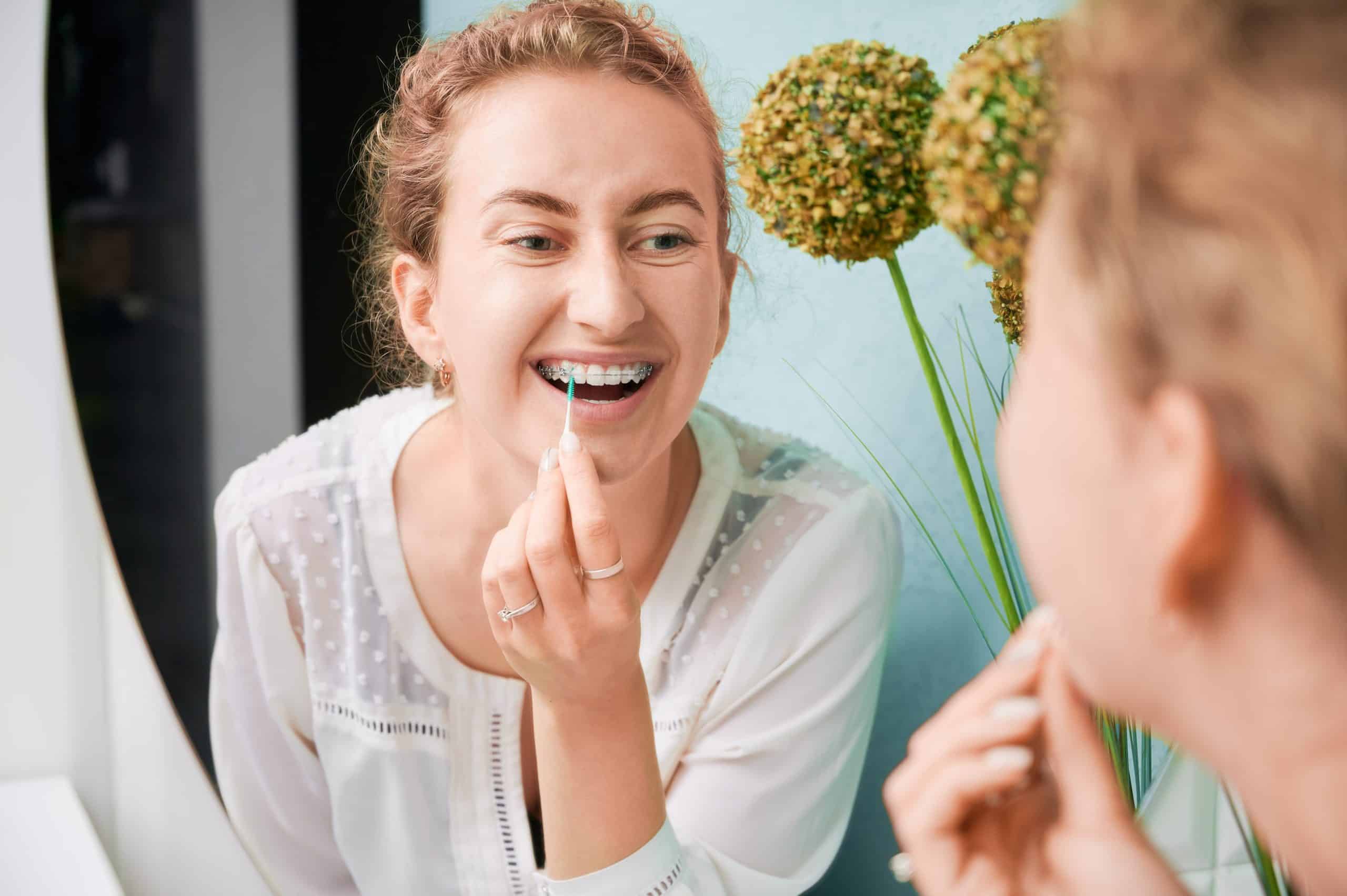Whether you or a loved one wears braces, you know it can be difficult to brush your teeth properly in between all of the brackets and wires. Without proper cleaning and dental care, there’s an increased risk of developing cavities and gum disease. At Ethos, we want to make sure you always have a healthy and confident smile, so we’ve put together a guide about preventing tooth decay and other dental issues while wearing braces.
Do braces make you more susceptible to tooth decay?
Braces are the most common form of teeth straightening procedures, however, without a thorough dental care routine, they can have some damaging effects to your overall oral health. Throughout the course of the day, bits of food can become lodged in your braces. If these leftover bits of food or sugar from drink are not cleaned away, they begin to form bacteria. This bacteria leads to plaque buildup, which ultimately leads to tooth decay (or cavities) and gum disease.
Preventing cavities while wearing braces
As all parents will tell you, prevention is better than a cure. If you find it more difficult to brush your teeth since getting braces, you might be worried you aren’t cleaning them thoroughly enough. Luckily, we can share our Ethos tips to keep your teeth in pristine condition.
- Brush after each meal. On your braces journey, you’ll need to pay more attention to your brushing technique and frequency. Try to make more effort to brush your teeth after big meals throughout the day to remove the food and bacteria that cling to your teeth and braces.
- Use interdental cleaners. Brushing your teeth is just the first of many important preventative steps. Interdental cleaners, such as waxed floss, interdental picks, and interproximal brushes (Piksters) help remove debris from between your teeth. These tools help remove the plaque and debris missed by your toothbrush.
- Incorporate a water-flosser. Even after brushing and flossing, some debris may become loose and remain in your mouth. To get rid of any remaining food, bacteria, and plaque, you may want to invest in a water-flosser. These push water through a device to flush around your teeth and braces.
- Visit Your Orthodontist Regularly. Your orthodontist is there to help you through your treatments, so it’s important you go to your regular adjustment visits. They can help identify any problem areas and give you individually tailored advice to keep your smile bright! It is also important to keep going to your general dentist for your routine six month check-ups too.
What are the signs of cavities?
There are a number of signs that you should look out for if you’re worried about cavities. It’s important to monitor any symptoms that may appear so you can receive the treatment you need before it progresses any further.
- Toothaches. Pain that occurs spontaneously or when eating should be a big warning sign that something isn’t quite right.
- Sensitivity. You might notice a tingling sensation when you consume hot or cold foods, which may be a sign of early decay or gum recession.
- Visible holes. Cavities can erode your teeth, leaving pits and holes. These may not always cause pain, but should always be cause for concern.
- Discolouration. Your teeth may first show signs of cavities as white spots, which overtime can darken to be brown or black.
Ethos is here to help
Our team is with you for every step of your orthodontic journey. Whether you are seeking assistance with improving your dental care routine or are experiencing discomfort, you should always reach out for advice. Contact us today to learn more.




